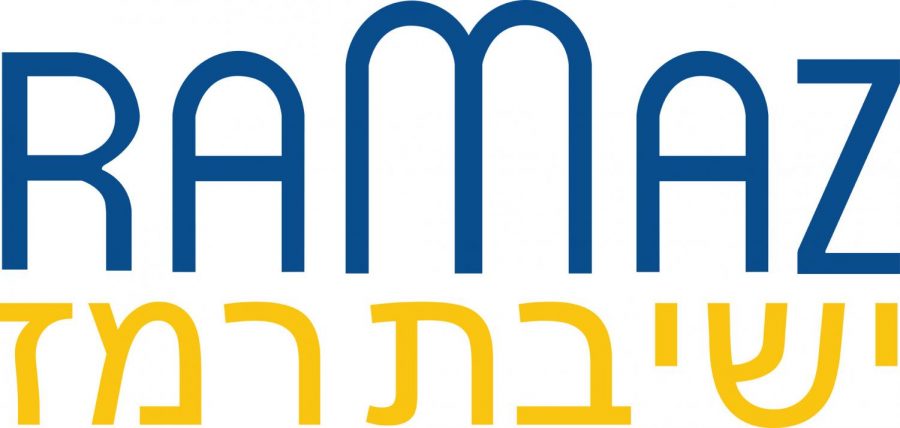SFAC: A Recap
The fourth and fifth Student Faculty Administration Committee (SFAC) meetings took place on February 12, in person, and March 18, over Zoom. Many topics discussed previously were readdressed with updates given by the respective committees. The following highlights the main subjects covered and salient points mentioned:
Communication with Teachers:
The committee reviewed the sections in Preludes which address the expectations about communication between faculty, students, and the administration. The aim was to tweak the wording to help clarify any unclear expectations. The committee established that teachers should use Schoology as much as they can for homework and should send more email notifications. Students should not get assignments after 6pm, as they may not have the necessary materials to complete the assignment. A question raised was when an assignment should be due if assigned during a free period. Is it fair for the assignment to be due at the end of the period? A member clarified that students are not allowed to use personal devices to check email during class, so students can’t be expected to see their emails during that time.
Spirit & Games:
The committee readdressed the question of how to enhance Ramaz spirit. This topic was previously addressed in November, after the Glouberman Los Angeles tournament which evoked a lot of welcome school spirit. Since then, Ramaz has seen a steady increase in student involvement in Ram events. Since November, the GO has promoted upcoming games on social media. Ramaz also planned one spirit day and two spirit nights. In addition, many students watched the Miami basketball tournament live stream, which was displayed in a classroom, on the GO Instagram, and on many students’ personal computers. Overall, many representatives agreed that the attempts made to increase Ramaz spirit have been a success so far, and are working to continue these initiatives.
Bathroom Policy:
The next topic discussed was the lack of an official bathroom policy at Ramaz. One member expressed that halachically, it may be a problem that we don’t have a policy since the Shulchan Aruch siman 4, states that it is wrong to delay using the bathroom. Since it seems that each teacher determines his or her own policy, the school should ensure that students feel comfortable leaving class to use the bathroom. Many teachers who allow students to use the bathroom during class force students to leave their phones in the classroom. One member said that students should be allowed to leave with their phones, suggesting that if a student wants to leave the classroom to talk, that student probably wouldn’t have paid attention in class anyway, so it’s better for the classroom atmosphere if that student isn’t present. Others agree that it is smart to allow students to use the bathroom, but the phone should remain in class. One member stated that the policy of one student leaving at a time is a good one, but some disagreed, saying this hurts students who actually need to use the bathroom when other students delay unnecessarily. Given that there is no uniform policy at Ramaz, if a student is having a problem with a specific teacher’s bathroom policy, he or she should consult with that particular teacher.
Use of Gym:
The committee raised the question of when students can access the gym and aimed to help form policies for gym use and supervision. One member pointed out that the 10th graders, and other grades as well, lost a period of gym class this year due to a scheduling change to accommodate another tech class. Students also mentioned that the number of students placed in each gym class differs widely; it’s difficult to play sports when some gym classes have 22 students while others have 8.
SFAC also discussed the availability of the gym to students during free periods. Currently, students can’t use the gym during a free period unless there is an adult present. One member pointed out that there is an adult covering the gym during periods 6-8, but it might be possible to have available faculty members cover other periods as well. A committee member reassured students that the issues of fewer gym classes and unevenly-sized classes will be dealt with better next year. A follow-up committee was created to help resolve the remaining issues.
Student Absences
The next agenda issue was to define the teacher’s responsibilities when a student misses class. If a student is absent, is it the teacher’s responsibility to re-teach that student the missed material? A member stated that if students want to be treated like adults, there is a sense of responsibility that comes with that; students should ask classmates for notes and be responsible for making up what they missed. If a student expends the effort to understand the material, and he or she is unsuccessful, then teachers should make themselves available to answer questions rather than to reteach the material; teachers do not have enough time to meet with every student. Also, it is frustrating to teachers when they have a lot of students absent because it disrupts the class. A follow-up committee was formed to revisit this topic.
Purim Ruach
What are ways in which Ramaz can incorporate a more cohesive Purim and holiday experience for students at Ramaz? One member suggested that there would be more overall spirit in the building if each grade’s carnival was closer together in time. Also, it should be mandatory for seniors to attend. The entire day of the carnival should emulate school spirit day with games and sports taking place. Another member stated that although the chagigah was fun, the attendance was not great. Perhaps there should be games beforehand to encourage people to show up. A student suggested that perhaps the Purim Spiel, which was cancelled, could have taken place on Zoom, although hopefully that will not be an issue for the future. Perhaps, since students miss their interactions with each other now that we don’t have school, the GO can still arrange for a Zoom school assembly with games. Another member suggested that Purim would have been a good time for color war. That is something to think about for next year.
Teacher Absences
What do students do when teachers do not show up to class? Is there a uniform set of expectations for this type of situation? One faculty member mentioned that there were times she covered for other teachers, but the students did not show up because they heard that the teacher was not present. She expressed that there should be a policy that students have to show up to class, whether their usual teacher is present or not. Students should assume that they have to go, but, when possible, teachers should tell their class beforehand if they plan to be absent. Several students cited the “ten-minute rule” as a rule that is already in place at Ramaz. If a teacher is not present after ten minutes, the students are free to leave. The question was raised as to whether those ten minutes begin after the second bell. Also, a faculty member clarified that this ten-minute rule only applies if the teacher did not forewarn the students that he or she plans to be late. Another faculty member voiced that, rather than leave, students should go to the office if a teacher does not arrive after ten minutes. One student mentioned that the teachers should post on Schoology if they plan to miss class. Most agreed that this is a smart plan. A faculty member added that teachers shouldn’t cover classes at the end of the day. A follow up group was formed for this issue.
Zoom Learning and Programing
The administration would like to assess how Zoom learning is working for students. What would students like to see more of and how can the school improve this experience? One student member questioned whether there will be a set calendar for the tests. She expressed that paradoxically, students feel they are given more work now than when they physically attended school, as every teacher assumes that students now have more free time. An administrator answered that the test calendar will be adjusted and a survey will address questions about work load as well as ask about students’ preferred methods of learning on Zoom. Students mentioned that Ramaz is one of the only yeshiva high schools that is still giving exams. Several administrators stated that they are proud that Ramaz maintains its rigor and is still administering tests. A senior (who has not had a test) agreed with the administration that tests are good to maintain. One student commented that tests are not being given at 8:45 am which is earlier than during the regular school day. An administrator said that if tests are later, students will be studying for the exams during other classes. A question about the time of exams will also be added to the survey. One student recommended different kinds of assignments, such as an in-class writing assignment, rather than formal assessments. A junior questioned whether the workload will ease up in June for the juniors considering that standardized tests have been cancelled in March, April and May. Many juniors will be taking standardized tests for the first time, in June. A school administrator said the school will surely be mindful of this. One student commented that clubs on Zoom are successful and more should be taking place. Administrators and students brainstormed other Zoom activities such as movie nights, challah bakings, and live workouts. A follow-up committee was formed to further this discussion.
Deadline for Follow Ups
A new policy was suggested that follow-up groups are required to email the chairperson by the halfway point between the previous meeting and the next one. Additionally, students should feel free to alert SFAC members to any topics that need to be addressed. Follow ups and new discussions will take place at the next meeting.

Caitlin Levine loves journalism, is an avid writer, and is thrilled to be an editor-in-chief of The Rampage. Caitlin has actively contributed to The Rampage...



